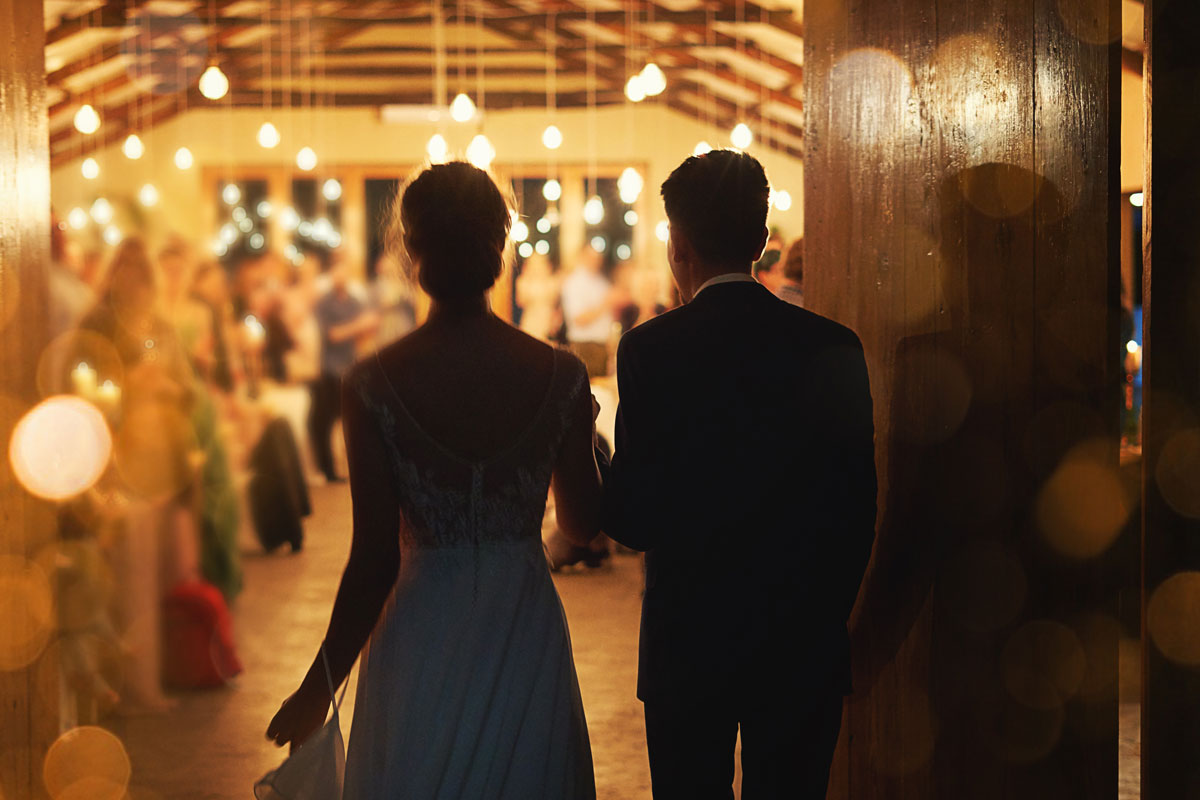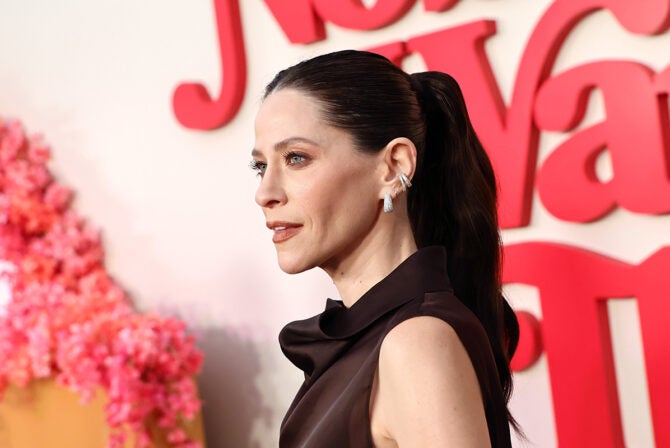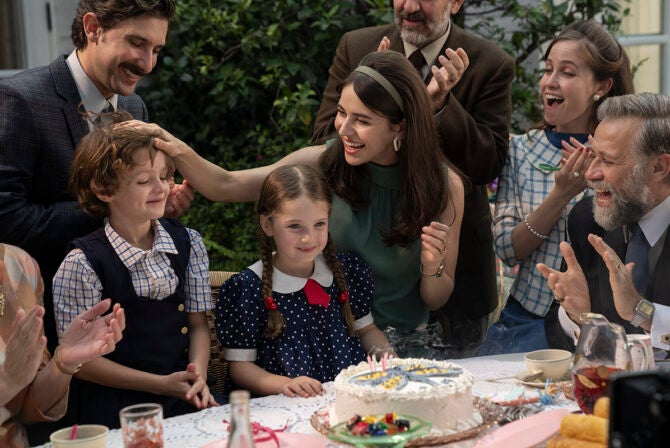I met my future husband on the first day of law school. We fell in love the way I fall asleep: fitfully, after an excessively long stretch of ruminating on all the things that could go wrong. You see, my husband-to-be was decidedly and beautifully Jewish. His Judaism was a sight to behold: He held his ancestry dear, believed that God was OK with our questions, trusted that holiness wasn’t exclusive to any religion and dedicated himself to repairing the world. Oh, and he only dated Jewish girls, which I was most certainly not.
I was raised in a firmly Methodist home. Church every Sunday, Bible study on Tuesdays, youth group on Wednesdays, Bible Club after school and Church Camp every summer. My experience with religion was fear-based: Heaven was the exclusive domain of righteous Christians, and all others would be condemned to hell. Unless, of course, I personally saved them. Super light lift.
I had never really challenged my religious beliefs – I was raised in an echo chamber, and never heard anyone question our version of Christianity, out loud at least. But when I met my future husband, I saw a profoundly different story of God. And I loved it. Yes, I loved my husband before I knew the depths of Judaism. Girl met boy, then girl met God. I converted shortly before we were married, after a year of learning, soul-searching and listening.
I have heard the whispers about women who “convert for marriage.” I can’t speak to that gossip; I believe that someone else’s conversion is God’s business, not mine. But I can say that, for me, I converted out of a desire to be Jewish, to live a Jewish life, to practice Judaism, and to experience the world through a much wider lens than my Christianity allowed. It was my husband who helped me realize that’s what I was missing.
Changing my belief system felt like an act of revolution, but a surprisingly invisible one. All of a sudden, my outward identity didn’t match my inner truth. On paper, I was still generically American. That wasn’t more apparent than in my name.
I had an uncommon but unremarkable last name. Easy to remember, easy to forget. It didn’t give away much, except that I didn’t belong to any particular group. It was certainly part of my identity — I grew up in a small town in a small southern state. As the town accountant, my father enjoyed some recognition in our little and literal neck of the woods, which means that we were known, too.
But now, I wanted to be known in a new way.
Let me pause to note the historical significance and modern privilege of the following: I desired an outward marker of my Judaism. A signal of my belief system. Something to more explicitly mark that I had gone through a significant transformation.
And so I changed my last name to my husband’s categorically Jewish one.
My decision to change my name did not stem from a patriarchal expectation, although it certainly didn’t rock that boat. My feminism didn’t love the forfeiture of my maiden (gag) name, but I felt called to change it on my own terms.
I wanted to answer the question before it was asked. There is surely some vanity baked into my choice, a measure of self-consciousness and self-doubt. If I don’t sound Jewish, will anyone believe me? Will they take me seriously? If I change my name, can I “pass?” Am I just code-switching to project confidence in my Judaism?
These thoughts still nag at me sometimes, but frankly, it’s worked for me. My name is my little Jewish shell. During the times that my anxious brain insists that I am an imposter, I can hide in my little shell and no one is the wiser. And during the times when I am feeling confident in my Jewishness, my little shell is just window dressing. Either way, I feel more assured, knowing that I’m unlikely to be asked to explain my presence in Jewish spaces.
Moreover, sometimes my co-workers assume I’ll be out of office for the High Holidays. Sometimes the parents of my kid’s classmates ask my take on the school’s Hebrew program. One time I visited a synagogue while traveling for work and a colleague asked me if a sign — written in Hebrew — was pointing to the restroom. Is there a more authentic way to tell a person that they belong than to ask them for directions to the restroom?
I don’t need to be told that a name is just a convention. That which we call a rose, by any other name would smell as sweet, and all that. It may be trivial, but I am proud of my identity, I’m at home in my Judaism, and I like to sign a name that reflects who I am. I took my husband’s last name, and I don’t regret it.








